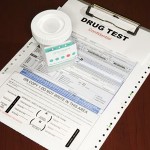 Over the past five years, the hit rate for criminal background checks has been on the decline as more nonprofit organizations background check their new hires. A recent study’s, data showed that from 2007 to 2011, more than 5.4 million background checks we conducted by nonprofits and 22 percent of those checks resulted in criminal hits.
Over the past five years, the hit rate for criminal background checks has been on the decline as more nonprofit organizations background check their new hires. A recent study’s, data showed that from 2007 to 2011, more than 5.4 million background checks we conducted by nonprofits and 22 percent of those checks resulted in criminal hits.
Of that 22 percent (approximately 479,000), background checks revealed very serious kidnapping, murder, sex-related and drug-related offenses. While it is shocking to know that criminals who have been convicted of kidnapping or molestation could be working amongst children, elders and people in need, we know that criminals go where they know they can get in “under the radar” – organizations [they know] do not conduct background checks.
In organizations working with children, such as the Boys & Girls Clubs of America, background checks are a must; the study found that 1,021 of the criminal hits were registered sex offenders, 603 convictions for kidnapping and 1,176 murder offenses.
What’s more is that between 2007 and 2011, 22 percent of those criminal hits also included 91,607 drug-related offenses including possession and distribution and 10,438 sex-related offenses. These figures are certainly eye-opening, but the good news is that these were hits, and thus these individuals were barred from employment at the nonprofits where they applied to work. Additionally, the number of criminals has declined over the past five years by 7 percent, according to the study.
The drop in criminal hits is attributed by the nonprofits’ use of background screening programs. When criminals know that nonprofits are conducting background checks, they seek employment somewhere else, so it is important for nonprofits to speak with background screening providers in order to mitigate risk, protect their reputations and those they seek to help.







 For the first time in 17 years, portions of the united states government are closed as the House of Representatives, the Senate and the White house were unable to reach an agreement to fund the federal government for the 2014 fiscal year.
For the first time in 17 years, portions of the united states government are closed as the House of Representatives, the Senate and the White house were unable to reach an agreement to fund the federal government for the 2014 fiscal year.










 Question #8: Should I fire an individual for having a positive drug test result?
Question #8: Should I fire an individual for having a positive drug test result?